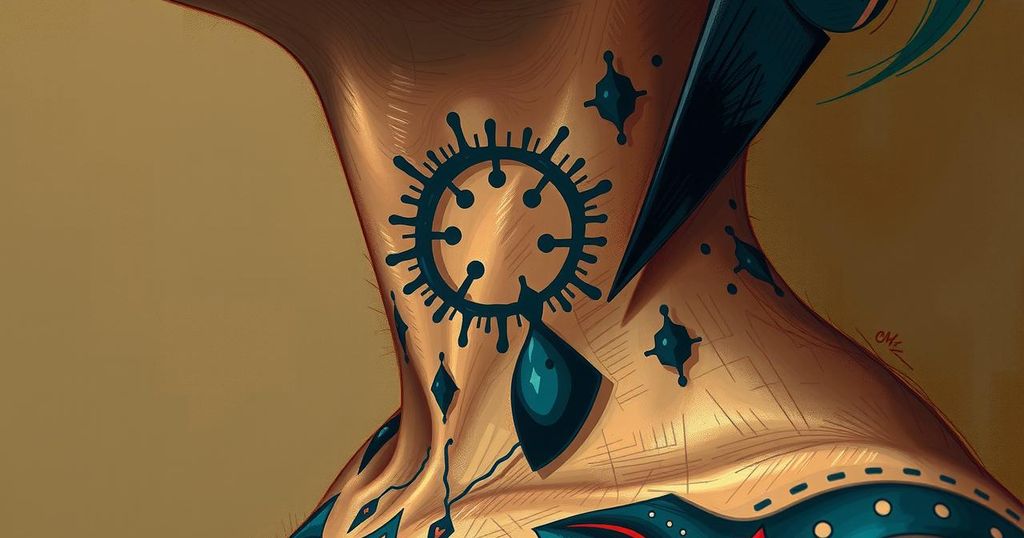Venezuelan mothers are identifying their sons in images of alleged gang members deported to El Salvador under Trump’s policy. Relatives deny their involvement in crime, asserting their sons sought better lives. Emotional testimonies from mothers reveal the harsh realities and wrongful accusations faced by families in distress amid ongoing immigration issues.
On March 17, in the Los Pescadores neighborhood of Maracaibo, Zulia, several mothers gathered in distress after identifying their sons among nearly 300 individuals deported to El Salvador under a program initiated by former President Donald Trump. The deportees included members of the Tren de Aragua gang, prompting heartfelt confessions from mothers asserting their sons’ innocence as they recognize them from tattoos, physical characteristics, and shaved heads.
Mercedes Yamarte, an anguished mother, conveyed her disbelief and sorrow as she identified her son, Melvin, in a TikTok video showing inmates entering a Salvadoran mega-prison. She stressed that her son had no criminal record and emphasized that he had been among those who surrendered due to desperate circumstances, not criminal affiliations. Her emotions highlighted the trauma faced by families unaware of their children’s deportation.
Before being detained by U.S. immigration on March 13, Melvin was a hard-working young man with aspirations and responsibilities, including raising his six-year-old daughter. His mother’s recollections described Melvin’s struggles as he endeavored to secure a better future for his family, illustrating a greater narrative of desperation among Venezuelan migrants seeking opportunities abroad.
As news spread, other mothers joined the search for their sons, including Yareli Herrera and Mirelys Casique, who found themselves in similar situations where they had to confront the possibility of their sons in the Salvadoran prison system. They maintained their sons’ innocence, asserting they were wrongfully categorized as gang members seeking brighter futures.
Public outrage also surfaced as mothers like Carmen Reyes and Mariela Villamazir expressed their distress over the lack of information and the potential wrongful accusations against their sons. Their calls for justice highlighted the broader community struggle against the stigmatization of Venezuelan migrants.
In response to the growing accusations, a family member addressed Salvadoran President Nayib Bukele, urging him to reconsider the blanket classifications of those detained, stressing that many do not belong to criminal groups. The poignant pleas of these mothers symbolize the human impact of immigration policies and the ongoing plight of families seeking justice and clarity for their loved ones.
In conclusion, the plight of Venezuelan mothers reacting to the deportation of their sons to El Salvador underscores the profound consequences of immigration policies. Their testimonials reveal not only the individuality of each case but also the frustrations of families who are facing wrongful accusations against their loved ones. As they navigate through grief and uncertainty, their calls for justice serve as a powerful reminder of the need for careful consideration of human stories behind immigration processes.
Original Source: english.elpais.com




